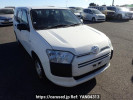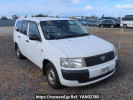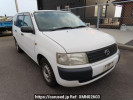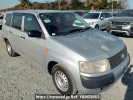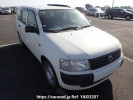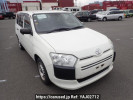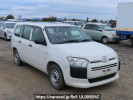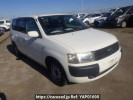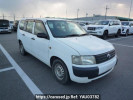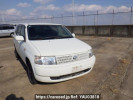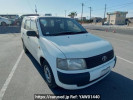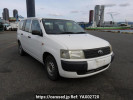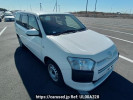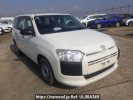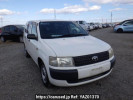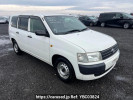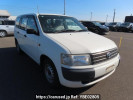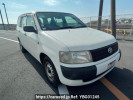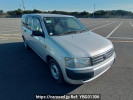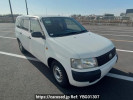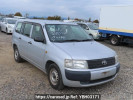Toyota Probox Van Overview
The Toyota Probox Van is a small commercial van that is designed for efficient transportation of cargo and passengers. It was first introduced in 2002, and has since become a popular choice for businesses and individuals in need of a compact and reliable van.
The name "Probox" is a combination of two words : "professional" and "box." The name is intended to reflect the vehicle's professional and practical nature, with a focus on efficiency and functionality.
The Probox was designed with the needs of businesses and individuals in mind, and it offers a versatile and reliable option for transporting both people and cargo. In this probox review, we will present about the first generation and about the engines used on the different models.
Popular Keywords and specifications for Toyota Probox Van
Models & Engine
Differences between Toyota Probox Van NCP50V, NCP51V, NCP55V:
The Toyota Probox Van is available in several different variants, including the NCP50, NCP51, and NCP55. While these models are similar in many ways, there are some key differences between them. Here are the main differences between the NCP50, NCP51, and NCP55:
Engine: The NCP50 and NCP51 are both powered by the 1NZ-FE engine, which is a 1.5-liter, 4-cylinder gasoline engine that produces 109 horsepower and 103 lb-ft of torque.
The NCP55, on the other hand, is powered by the 2NZ-FE engine, which is a 1.3-liter, 4-cylinder gasoline engine that produces 87 horsepower and 89 lb-ft of torque.
Transmission: The NCP50 and NCP51 come with a 4-speed automatic transmission, while the NCP55 comes with a 5-speed manual transmission.
Dimensions: The NCP50 and NCP51 have the same dimensions, with a length of 4,255 mm, a width of 1,695 mm, and a height of 1,525 mm.
The NCP55 is slightly shorter, with a length of 4,155 mm, but has the same width and height as the NCP50 and NCP51.
Fuel economy: The NCP50 and NCP51 have a combined fuel economy rating of up to 25 km/L (58.8 miles per gallon), while the NCP55 has a combined fuel economy rating of up to 21 km/L (49.4 miles per gallon).
Interior features: While the basic interior features are similar across all three models, there may be some differences in optional front seat features and trim levels depending on the market.
Availability: The NCP50 and NCP51 are both available in many markets around the world, while the NCP55 is primarily sold in Japan and a few other Asian markets.
Overall, the main differences between the NCP50, NCP51, and NCP55 are the engine, transmission, and fuel economy.
1NZ Engine
The 1NZ-FE engine is a standard engine designed and used by Toyota on a large portion of its standard vehicles manufactured in Japan and on vehicles manufactured in Asia. The engine offers 109 hp (81 kW; 111 IPS) at 6000 rpm with a torque of 141 N.m at 4200 rpm.
It was first introduced in 1999 and has been used in a wide range of Toyota vehicles, including the Corolla, Vitz (Yaris), Platz, and probox.
Here are some of the main features and specifications of the 1NZ-FE engine:
Configuration: The 1NZ-FE engine is a 4-cylinder inline engine with a total displacement of 1.5 liters.
DOHC: The engine has a dual overhead camshaft (DOHC) configuration, which helps to improve engine efficiency and power output.
VVT-i: The engine features Toyota's VVT-i (Variable Valve Timing with intelligence) system, which helps to optimize the engine's performance by adjusting the timing of the intake and exhaust valves.
Power output:
The 1NZ-FE engine produces 109 horsepower and 103 lb-ft of torque, which is relatively modest but adequate for most applications.
Fuel efficiency: The engine is known for its excellent fuel efficiency, with a combined fuel economy rating of up to 30 miles per gallon (12.75 kilometers per liter).
Applications: The 1NZ-FE engine has been used in a wide range of Toyota vehicles, including the Corolla, Vitz (Yaris), Platz, and probox.
2NZ Engine
Configuration: The 2NZ-FE engine is a 4-cylinder inline engine with a total displacement of 1.3 liters.
DOHC: The engine features a dual overhead camshaft (DOHC) configuration, which allows for better engine efficiency and power output compared to a single overhead camshaft (SOHC) engine.
VVT-i: Like the 1NZ-FE engine, the 2NZ-FE engine also features Toyota's VVT-i (Variable Valve Timing with intelligence) system, which helps optimize engine performance by adjusting the timing of the intake and exhaust valves.
Power output: The 2NZ-FE engine produces around 85-90 horsepower and 82-89 lb-ft of torque, depending on the specific application and tuning.
Fuel efficiency: The engine is known for its excellent fuel efficiency, with a combined fuel economy rating of up to 40 miles per gallon (17 kilometers per liter), depending on the vehicle and driving conditions.
First generation of Toyota Probox Van
The first generation of the Toyota Probox Van was introduced in 2002 and was produced until 2009. It was based on the Toyota Platz/Vitz subcompact car platform, which gave it a compact and lightweight body with a spacious and practical interior.
Here are some of the main features and specifications of the first generation Toyota Probox Van:
Exterior: The first generation Probox Van had a boxy and utilitarian design, with a flat roof and large windows that provided excellent visibility. It was available in several colors and had a simple yet functional appearance.
Interior: The Probox Van had a spacious and practical interior, with plenty of headroom and legroom for both the driver and passengers. The rear seats could be folded down to create additional cargo space, and the sliding side doors made it easy to load and unload goods or equipment.
Engine: The first generation Probox Van was powered by a 1.3-liter or 1.5-liter, 4-cylinder gasoline engine, depending on the specific model and market. These engines were known for their reliability and fuel efficiency.
Transmission: The Probox Van came with either a 4-speed automatic or a 5-speed manual transmission, depending on the specific model and market.
Fuel economy: The Probox Van was known for its excellent fuel economy, with a combined rating of up to 17 km/L (40 miles per gallon), depending on the engine and transmission.
Safety features: The Probox Van was equipped with several safety features, including anti-lock brakes (ABS), driver and passenger airbags, and seatbelt pretensioners.
Durability: The Probox Van was known for its durability and low maintenance requirements, making it a popular choice for small businesses and individuals who needed a reliable and practical vehicle for transporting goods or equipment.
Common Issues With Used Probox Van
Engine problems : Some Probox vans may experience engine problems, such as overheating, oil leaks, and reduced power. These issues may be caused by a variety of factors, including poor maintenance, worn out parts, and engine misfires.
Suspension issues: Probox vans may also experience suspension problems, such as worn out shock absorbers and suspension bushes. These issues can lead to poor handling, excessive tire wear, and a rough ride.
Electrical problems : Some Probox vans may experience electrical problems, such as faulty wiring, dead batteries, and malfunctioning sensors. These issues can cause a variety of symptoms, including warning lights on the dashboard, reduced performance, and starting problems.
Rust and corrosion : Probox vans are also prone to rust and corrosion, especially in areas with high humidity or salty air. Rust can cause structural damage, affect the performance of various parts, and reduce the resale value of the vehicle.
It's worth noting that not all Probox vans will experience these issues, and many owners have reported reliable performance and low maintenance costs.
Regular maintenance and timely repairs can help prevent or mitigate these issues, and it's always a good idea to have a professional mechanic inspect the vehicle before making a purchase.
Popular Usage
The Toyota Probox Van is a popular vehicle in many parts of the world, especially in developing countries, where it is commonly used for commercial purposes.
Here are some of the popular usages of the Toyota Probox Van:
Taxi: In many countries, the Toyota Probox Van is used as a taxi because of its affordability, fuel efficiency, and reliability.
Delivery van: The Probox Van has a spacious cargo area that makes it ideal for delivering goods. It is commonly used by small businesses, online retailers, and courier companies.
Mobile office: The Probox Van is also used as a mobile office by service providers such as plumbers, electricians, and technicians who need to carry their tools and equipment with them.
School transport: The Probox Van is used as a school van in many countries because it can carry many students and is also affordable to operate.
Personal use: The Probox Van is also popular for personal use, especially for families with small children or individuals who need a reliable and spacious vehicle for their daily commute.
Overall, the Toyota Probox Van is a versatile vehicle that can be used for a wide range of purposes, making it a popular choice for many people in different parts of the world.
Rivals of Toyota Probox Van
The Toyota Probox Van has several competitors in the small commercial van market. Here are some of the main rivals of the Probox Van :
Nissan NV200: The Nissan NV200 is a compact commercial van that is known for its spacious cargo area and fuel efficiency. It is available in several different configurations and is a popular choice for small businesses and delivery companies.
Suzuki Carry: The Suzuki Carry is a small commercial van that is known for its affordability and durability. It is available in both van and pickup truck configurations and is a popular choice for businesses in Asia and other parts of the world.
Daihatsu Hijet: The Daihatsu Hijet is a small commercial van that is known for its compact size and fuel efficiency. It is available in several different configurations and is a popular choice for businesses in Japan and other parts of the world.
Ford Transit Connect : The Ford Transit Connect is a small commercial van that is known for its spacious cargo area and versatility. It is available in both van and passenger wagon configurations and is a popular choice for businesses and families in North America and Europe.
Find the Best Used Toyota Probox Van !
If you're looking to buy a Toyota Probox or Toyota Probox van DX, check out our inventory of new and used Probox models for sale, including the manual transmission option, and get detailed information on Probox specs and pricing to find the perfect Toyota Probox van for your needs.
Carused.jp has a proven track record of selling top-quality Japanese used cars for more than a decade. We export more than 500 used vehicles every month to more than 100 countries in total. What's more, we've earned a reputation as trusted sellers.
We also submit our vans to a second inspection by a van inspection expert. You can check more than 140,000 stocks, including Japanese used van, for sale. If you're looking for a used probox for sale, please feel free to search for probox 1nz for sale, probox 2nz for sale and browse our current stocks.

